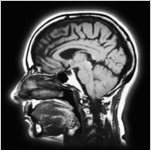
By GRETCHEN REYNOLDS Jim Wehtje/Getty Images What goes on inside your brain when you exercise? That question has preoccupied a growing number of scientists in recent years, as well as many of us who exercise. In the late 1990s, Dr. Fred Gage and…
The adoptees were as fat as their biological parents, and how fat they were had no relation to how fat their adoptive parents were.The scientists summarized it in their paper: œThe two major findings of this study were that there was a clear relation between the body-mass index of biologic parents and the weight class of adoptees, suggesting that genetic influences are important determinants of body fatness; and that there was no relation between the body-mass index of adoptive parents and the weight class of adoptees, suggesting that childhood family environment alone has little or no effect.In other words, being fat was an inherited condition.Dr…. Going much above or much below the natural weight range is difficult, however; the body resists by increasing or decreasing the appetite and changing the metabolism to push the weight back to the range it seeks.The message is so at odds with the popular conception of weight loss ” the mantra that all a person has to do is eat less and exercise more ” that Dr. Jeffrey Friedman, an obesity researcher at the Rockefeller University, tried to come up with an analogy that would convey what science has found about the powerful biological controls over body weight.He published it in the journal Science in 2000 and still cites it:œThose who doubt the power of basic drives, however, might note that although one can hold one™s breath, this conscious act is soon overcome by the compulsion to breathe, Dr. Friedman wrote.